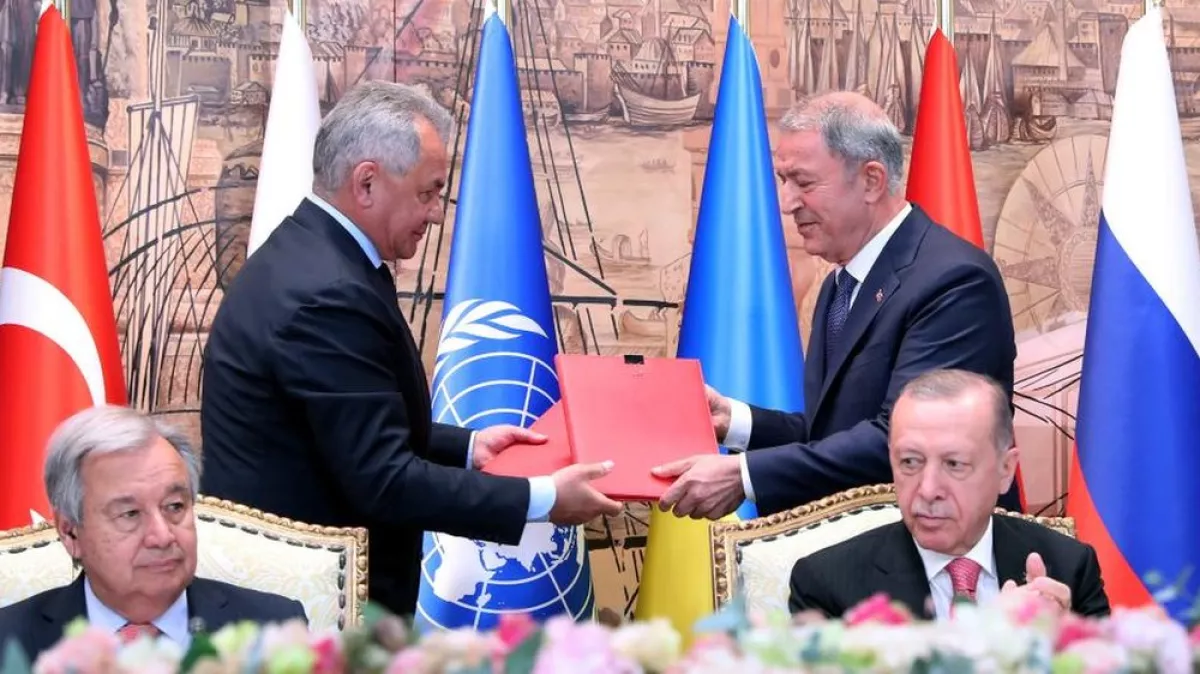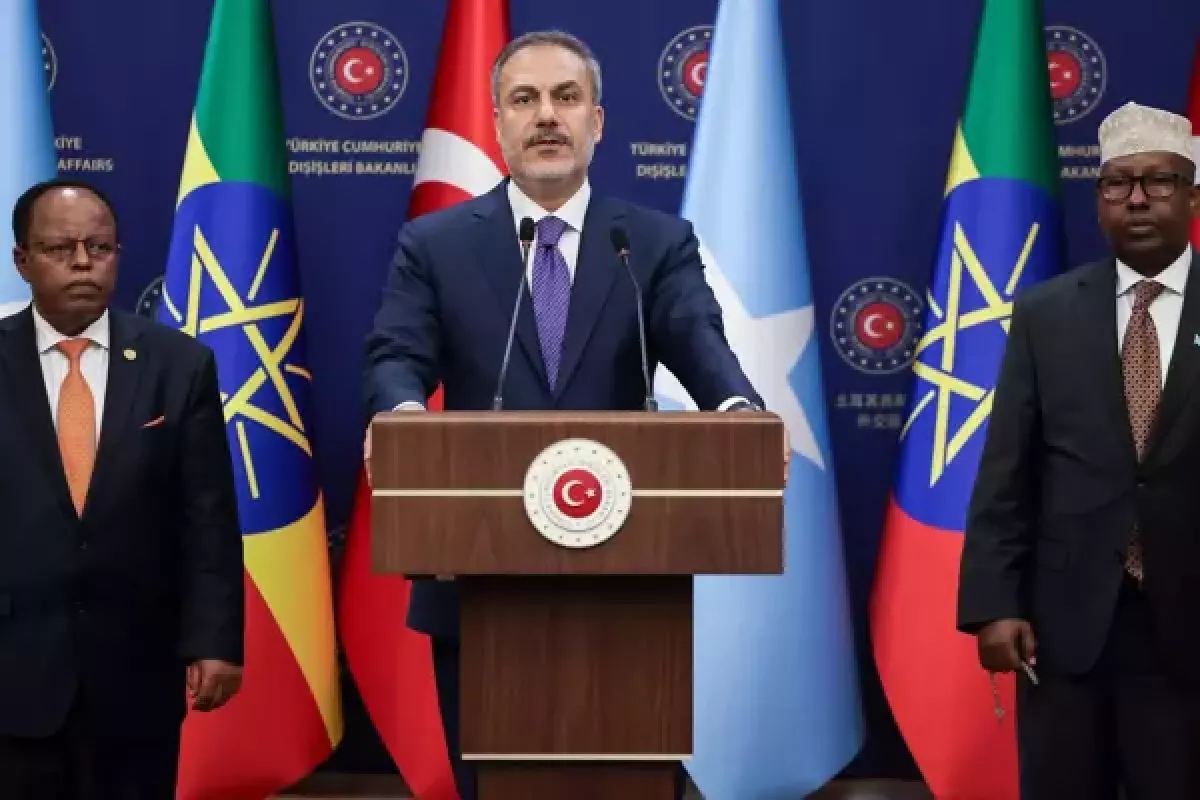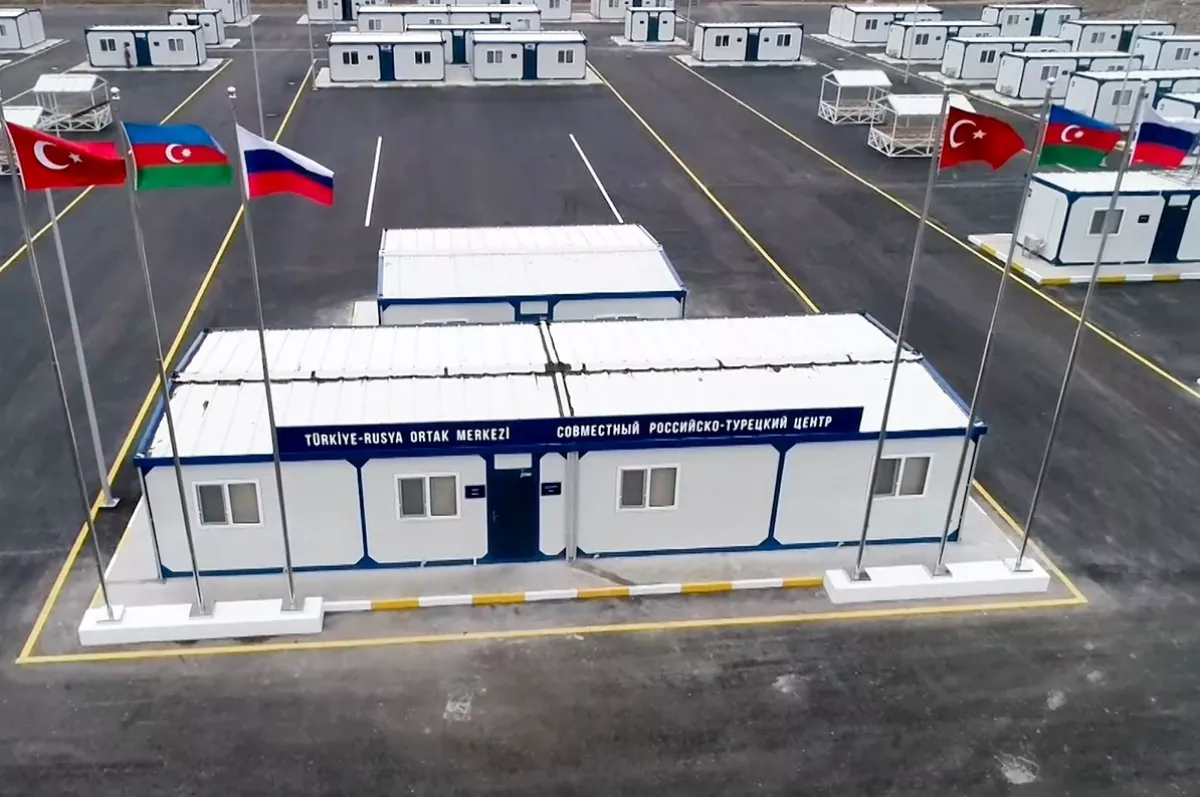Türkiye’s expanding role as global mediator
Türkiye’s growing influence as an international mediator has once again taken center stage, as delegations from Russia, Ukraine, and the United States gather in Istanbul for potentially monumental peace talks aimed at ending the ongoing Russia-Ukraine war.
From orchestrating critical grain export agreements to facilitating prisoner exchanges and brokering peace in Africa, the Anadolu agency has laid out how Türkiye managed to cement its status as a capable and trusted intermediary in global diplomacy.
Russia-Ukraine conflict mediation Since the onset of the Russia-Ukraine war in early 2022, Türkiye has maintained open communication channels with both sides, enabling it to play a crucial mediating role. Early in the conflict, Türkiye hosted the highest-level meeting between Russian and Ukrainian foreign ministers at the Antalya Diplomacy Forum on March 10, 2022. Later that month, Istanbul became the venue for a three-day negotiation round between both sides, which remains the only direct diplomatic engagement between Russia and Ukraine since the war began.
One of Türkiye’s most lauded diplomatic achievements came in July 2022 when, alongside the United Nations, it brokered the Black Sea Grain Initiative. The deal facilitated the safe export of Ukrainian grain through contested waters, alleviating fears over global food security. The agreement also led to the creation of a Joint Coordination Center in Istanbul to oversee the implementation. Türkiye’s neutrality and the personal diplomacy of President Recep Tayyip Erdoğan—who remains the only NATO leader to have visited both Ukraine and Russia during the war—have reinforced Ankara’s status as a reliable negotiator.

Further demonstrating its diplomatic reach, Türkiye mediated a major prisoner exchange between the two warring nations in September 2022, including high-profile individuals such as Viktor Medvedchuk, a close ally of Russian President Vladimir Putin. Mediating African disputes: Somalia and Ethiopia Türkiye’s mediation efforts are not confined to Europe.
In December 2024, Türkiye played a key role in resolving a major dispute between Somalia and Ethiopia, sparked by Ethiopia’s maritime deal with the breakaway region of Somaliland. The negotiations culminated in the Ankara Declaration, signed after a seven-hour marathon discussion. The agreement reaffirmed both nations’ commitment to respecting each other’s sovereignty and territorial integrity. Experts say Türkiye’s success in this instance is largely due to its long-standing and balanced relations with both countries. Somalia, a central partner in Türkiye’s Africa policy, and Ethiopia, whose ties with Türkiye date back to the Ottoman Empire, both saw Ankara as an impartial and credible actor.

Unprecedented international prisoner exchange In August 2024, Türkiye’s National Intelligence Organization (MIT) facilitated one of the largest international prisoner exchanges in recent memory. The swap involved 26 individuals from seven countries, including Russia, the US, Germany, and Belarus, and was coordinated using seven aircraft. This effort underscored Türkiye’s logistical capabilities and its growing diplomatic influence on a global scale.
South Caucasus Türkiye and Russia have opened a joint military facility in Azerbaijan to help monitor the ceasefire with Armenia a couple of months after the end of the Second Karabakh War at the end of 2020, a stark indicator of the shifting geopolitics in the region. Staffed by an equal number of Russian and Turkish troops – 60 on each side – in the Aghdam region, it marked a rare case of direct military cooperation between the two historical foes to further peace in the region. The two contingents worked in parallel, and there was no single commander as each side had its own general in command.

Diplomatic engagement in the Balkans Türkiye has also been instrumental in promoting peace and stability in the Balkans. Since 2010, it has led trilateral cooperation efforts involving Bosnia-Herzegovina, Serbia, and Croatia, aimed at reconciliation and economic cooperation. The most recent of these meetings took place in June 2024 as part of the Dubrovnik Forum, signalling Türkiye’s sustained commitment to regional integration and stability.
Broader mediation initiatives Türkiye’s reach extends to conflict zones in the Middle East, Central Asia, and Southeast Asia. It has contributed to reconciliation efforts in Iraq, Lebanon, and Palestine, and played a key role in the Istanbul Process launched in 2011 with Afghanistan and Pakistan. Türkiye has also supported peace initiatives in Sudan and South Sudan, and contributed to the peace process in South Philippines. These efforts reflect a broader foreign policy commitment to mediation that dates back decades.
Notably, in 2010, Türkiye co-launched the UN’s “Mediation for Peace” initiative, boosting global recognition of the role of mediation in resolving conflicts. Why Türkiye is regarded as trusted mediator Experts highlight Türkiye’s impartiality, robust diplomatic infrastructure, and long-standing relationships as key reasons for its effectiveness. Türkiye has cultivated deep ties with African nations through development aid, educational programs, and economic partnerships. Its wide diplomatic presence—embassies across Africa, Turkish Airlines flights to dozens of cities, and numerous humanitarian projects—adds to its credibility.
Professor Elem Eyrice Tepeciklioglu notes that Türkiye’s trustworthiness is also rooted in identity-based factors such as shared culture and history, particularly relevant in regions like Africa and Central Asia. Professor Esra Cuhadar further emphasizes that Türkiye’s combination of neutrality, resources, and geographic proximity to conflict zones strengthens its role. Whether in Ukraine, Africa, the Balkans, or beyond, Ankara continues to be viewed as a neutral, resourceful, and increasingly indispensable diplomatic actor on the world stage.
By Nazrin Sadigova








